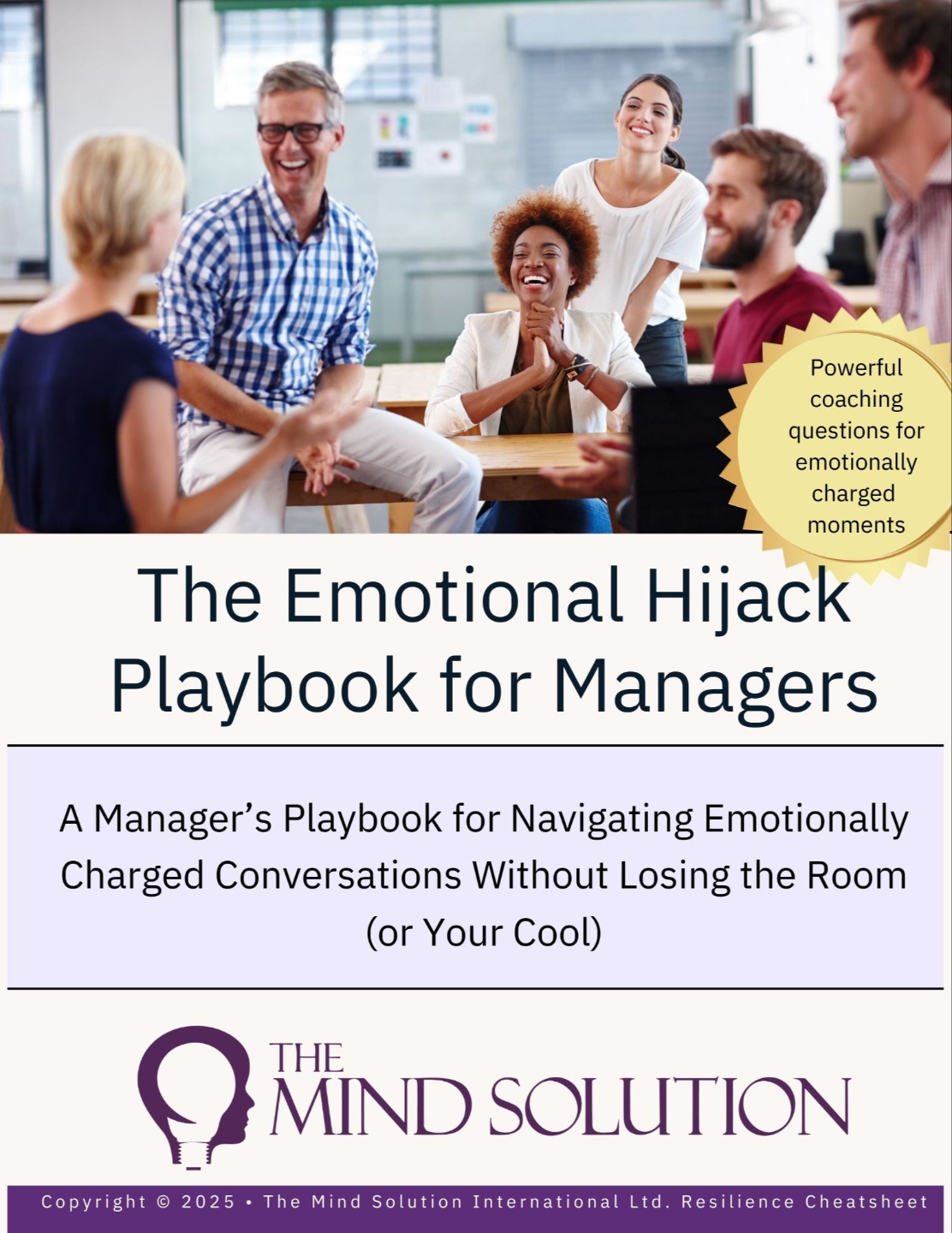The Stigma of Mental Health at Work: Why It’s Still a Problem
Aug 01, 2025
There’s been a lot of noise in recent years about mental health at work. Awareness weeks, campaigns, headspace apps, resilience toolkits… we’ve come a long way.
Or have we?
Despite all the noise, stigma is still lurking in meeting rooms, line manager conversations, and performance reviews. And unlike a spreadsheet error or missed KPI, stigma isn’t easy to pin down, but you can feel it. It's in the raised eyebrows. The hesitation to ask. The awkward silences. The quiet decisions made about someone who seems "off."
And too often, it’s the reason someone never speaks up.
Stigma doesn’t wear a badge — but it shows up
One of the things I hear most from people is: “I didn’t even realise how much I was struggling until someone asked me.”
That moment of recognition when someone sees behind the smile and checks in is huge. It can be the difference between someone spiralling and someone recovering. And yet, in so many workplaces, we're still waiting for people to wave a white flag instead of teaching managers how to notice the signs.
We forget: mental health struggles don’t come with an announcement.
Sometimes it’s the camera that’s suddenly off. The employee who used to be meticulous making silly mistakes. The person who always volunteers for extra projects is suddenly going quiet. None of that screams “struggling” on a spreadsheet. But it says a lot if you’re trained to notice it.
Where stigma really shows up — in the gap between policy and presence
Most managers want to do the right thing. But empathy can’t be summoned on a deadline.
Without proper mental health awareness training, they fall back on what’s safe: policy, procedure, performance conversations. HR templates.
And that’s where stigma slides in. Because if you haven’t created a psychologically safe environment, any conversation about mental health can start to feel like a problem to fix or avoid, not a human to connect with.
As one manager said;
“Mental health struggles are difficult to deal with — not just because of the pain, but because of the stigma attached.”
So we wait. And hope the person speaks up. Until one day, they're gone, burned out, shut down, or job hunting for a workplace that gets it.
Managers aren't always trained to be leaders, and that matters
An HR Manager hit the nail on the head when she said;
“People managers often land in their roles due to subject matter expertise, but are not given people manager training.”
They’re brilliant analysts, engineers, consultants… but they’ve never been trained in emotional intelligence. In listening without fixing. How to create safety. How to respond when someone says, “I’m not okay.”
And that gap between technical skill and human leadership is where stigma thrives. Not because people are bad or uncaring, but because they don’t know what they don’t know.
Mental health isn’t just about being “nice.” It’s about recognising the cost of silence, the weight of assumptions, and the impact of our reactions — or lack of them.
“Sacking broken people isn’t leadership. Fixing broken systems is.”
That line hit hard when I saw it. And it's true.
Too often, managers are scared. Scared of saying the wrong thing. Scared of not knowing what to do. Scared of what it means if someone says they’re struggling.
And when fear runs the show, it’s easier to ignore, avoid, or blame.
But we need to stop placing the entire burden on the employee. We need to stop waiting for someone to collapse before we take mental health seriously. And we need to stop assuming that our current systems are neutral; they’re not. They’re shaped by stigma unless we intentionally do the work to change that.
So what do we do?
We train for it.
Not with a tick-box module or a lunch-and-learn. But with real, experiential mental health training for managers that helps them:
-
Spot early signs — even when someone says they’re “fine”
-
Respond with empathy, not fear
-
Know when to step in — and when to step back
-
Create environments where people feel safe, seen, and supported
Because here’s the truth: People don’t leave jobs, they leave managers. And stigma doesn’t just hurt your people, it costs you loyalty, performance, and trust.
We can’t change the world overnight. But we can change the way managers lead. And that’s where stigma starts to dissolve, not in a headline, but in a one-to-one conversation where someone finally feels safe enough to say the truth.
Ready to bring Mental Health Training for Managers to Your Organisation? Let's Get The Conversation Started
The Emotional Hijack Playbook For Managers
A Manager’s Free Resource for Navigating Emotionally Charged Conversations Without Losing the Room (or Your Cool).
Perfect to use in your next one-to-one.







